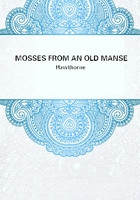
第59章 DROWNE'S WOODEN IMAGE(2)
"And Drowne," said he, impressively, "you must lay aside all other business and set about this forthwith. And as to the price, only do the job in first-rate style, and you shall settle that point yourself.""Very well, captain," answered the carver, who looked grave and somewhat perplexed, yet had a sort of smile upon his visage;"depend upon it, I'll do my utmost to satisfy you."From that moment the men of taste about Long Wharf and the Town Dock who were wont to show their love for the arts by frequent visits to Drowne's workshop, and admiration of his wooden images, began to be sensible of a mystery in the carver's conduct. Often he was absent in the daytime. Sometimes, as might be judged by gleams of light from the shop windows, he was at work until a late hour of the evening; although neither knock nor voice, on such occasions, could gain admittance for a visitor, or elicit any word of response. Nothing remarkable, however, was observed in the shop at those late hours when it was thrown open. A fine piece of timber, indeed, which Drowne was known to have reserved for some work of especial dignity, was seen to be gradually assuming shape. What shape it was destined ultimately to take was a problem to his friends and a point on which the carver himself preserved a rigid silence. But day after day, though Drowne was seldom noticed in the act of working upon it, this rude form began to be developed until it became evident to all observers that a female figure was growing into mimic life. At each new visit they beheld a larger pile of wooden chips and a nearer approximation to something beautiful. It seemed as if the hamadryad of the oak had sheltered herself from the unimaginative world within the heart of her native tree, and that it was only necessary to remove the strange shapelessness that had incrusted her, and reveal the grace and loveliness of a divinity. Imperfect as the design, the attitude, the costume, and especially the face of the image still remained, there was already an effect that drew the eye from the wooden cleverness of Drowne's earlier productions and fixed it upon the tantalizing mystery of this new project.
Copley, the celebrated painter, then a young man and a resident of Boston, came one day to visit Drowne; for he had recognized so much of moderate ability in the carver as to induce him, in the dearth of professional sympathy, to cultivate his acquaintance.
On entering the shop, the artist glanced at the inflexible image of king, commander, dame, and allegory, that stood around, on the best of which might have been bestowed the questionable praise that it looked as if a living man had here been changed to wood, and that not only the physical, but the intellectual and spiritual part, partook of the stolid transformation. But in not a single instance did it seem as if the wood were imbibing the ethereal essence of humanity. What a wide distinction is here!
and how far the slightest portion of the latter merit have outvalued the utmost degree of the former!
"My friend Drowne;" said Copley, smiling to himself, but alluding to the mechanical and wooden cleverness that so invariably distinguished the images, "you are really a remarkable person! Ihave seldom met with a man in your line of business that could do so much; for one other touch might make this figure of General Wolfe, for instance, a breathing and intelligent human creature.""You would have me think that you are praising me highly, Mr.
Copley," answered Drowne, turning his back upon Wolfe's image in apparent disgust. "But there has come a light into my mind. Iknow what you know as well, that the one touch which you speak of as deficient is the only one that would be truly valuable, and that without it these works of mine are no better than worthless abortions. There is the same difference between them and the works of an inspired artist as between a sign-post daub and one of your best pictures.""This is strange," cried Copley, looking him in the face, which now, as the painter fancied, had a singular depth of intelligence, though hitherto it had not given him greatly the advantage over his own family of wooden images. "What has come over you? How is it that, possessing the idea which you have now uttered, you should produce only such works as these?"The carver smiled, but made no reply. Copley turned again to the images, conceiving that the sense of deficiency which Drowne had just expressed, and which is so rare in a merely mechanical character, must surely imply a genius, the tokens of which had heretofore been overlooked. But no; there was not a trace of it.
He was about to withdraw when his eyes chanced to fall upon a half-developed figure which lay in a corner of the workshop, surrounded by scattered chips of oak. It arrested him at once.
"What is here? Who has done this?" he broke out, after contemplating it in speechless astonishment for an instant. "Here is the divine, the lifegiving touch. What inspired hand is beckoning this wood to arise and live? Whose work is this?""No man's work," replied Drowne. "The figure lies within that block of oak, and it is my business to find it.""Drowne," said the true artist, grasping the carver fervently by the hand, "you are a man of genius!"As Copley departed, happening to glance backward from the threshold, he beheld Drowne bending over the half-created shape, and stretching forth his arms as if he would have embraced and drawn it to his heart; while, had such a miracle been possible, his countenance expressed passion enough to communicate warmth and sensibility to the lifeless oak.